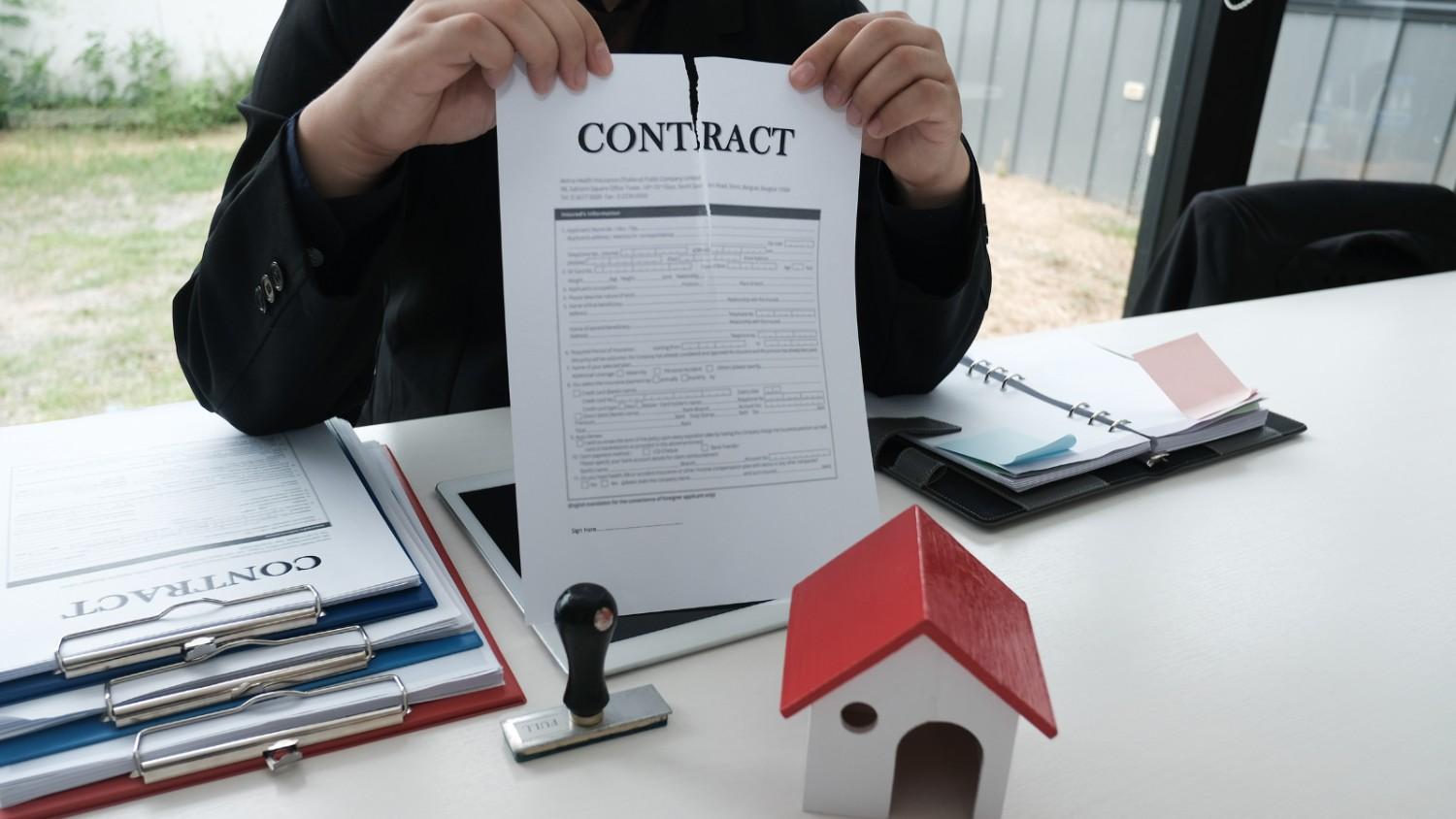
Dealing with a breach of contract can feel like stepping into a maze of frustration and uncertainty. Broken agreements often lead to halted projects, financial strain, and tense professional relationships, leaving you to pick up the pieces. Adding litigation to the mix, with its legal complexities and potential for prolonged disputes, can make the situation even more daunting.
This guide will assist by showing you how to effectively handle breach-of-contract disputes during litigation, with insights to protect your business interests. You’ll also learn how partnering with a reliable business dispute attorney can help you navigate this challenging process confidently.
Understanding Breach of Contract During Business Litigation
A breach of contract occurs when one party fails to meet their obligations as outlined in a legally binding agreement. In business litigation, this typically involves disputes over payment, delivery of goods, or the quality of services. Such breaches can escalate into formal legal disputes, primarily when the affected party seeks compensation or enforcement of the agreement.
The implications of breach of contract during business litigation include:
- Financial Losses: Disruptions to operations or lost revenue resulting from unmet obligations.
- Reputation Damage: Broken contracts can harm client, partner, or investor relationships.
- Legal Costs: Pursuing litigation or defending against claims can be expensive and time-consuming.
- Operational Disruptions: Time spent on legal matters detracts from running the business effectively.
Recognizing these impacts underscores the importance of handling breach of contract disputes with careful preparation and professional legal support.
Essential Steps to Navigate Breach of Contract Litigation Successfully
Handling breach of contract disputes requires a systematic approach to protect your interests and minimize risks. Each stage of litigation demands careful planning, solid evidence, and clear communication to achieve the best possible outcome.
Initial Case Assessment and Documentation Gathering
The first step in managing a breach-of-contract dispute is assessing the details of the case. Review the contract carefully to confirm its terms, identify the specific breach, and evaluate its impact. This includes determining whether the breach is material—meaning it affects the heart of the agreement—or minor, with limited consequences. Understanding these distinctions helps you decide whether litigation is necessary or if alternative solutions might work.
Documentation is the cornerstone of any strong case. Gather all relevant records, such as signed agreements, correspondence, payment invoices, and proof of damages. Well-organized evidence strengthens your position and ensures your attorney can build an effective strategy from the outset. Early preparation often sets the tone for the entire litigation process.
Filing the Lawsuit and Responding to Legal Claims
When informal resolution fails, filing a lawsuit becomes the next logical step. This involves drafting a formal complaint outlining the breach, the relief you seek, and the evidence supporting your claim. The filing must comply with specific legal requirements, so working closely with an attorney at this stage is essential. A well-prepared complaint can demonstrate the seriousness of your case and encourage the other party to negotiate or settle.
Responding promptly and strategically is equally essential if you’re receiving a breach of contract claim. Missing deadlines or providing incomplete answers could lead to adverse rulings, including default judgments. By carefully addressing each claim and presenting your defenses, you can protect your position and potentially shift the case in your favor.
Managing the Discovery Process and Evidence Collection
The discovery phase is where both parties exchange information to support their arguments. This phase often determines the strength of a case, as it uncovers facts that might not have been apparent earlier. During this stage, you may be required to produce documents, answer written questions (interrogatories), or participate in depositions.
It’s critical to approach discovery with diligence and transparency. Providing complete and accurate responses fulfills your legal obligations and helps build trust with the court. Refusing to provide documents is rarely a good strategy and can backfire with severe consequences, increased legal fees and other issues. At the same time, reviewing the other party’s disclosures and documents can reveal inconsistencies or weaknesses in their case, offering opportunities to bolster your arguments.
Developing Trial Strategy and Settlement Negotiations
A strong trial strategy begins with understanding your goals—whether you aim to secure a judgment, enforce contract terms, or recover damages. Work closely with your business litigation attorney to develop arguments that align with the evidence and anticipate potential challenges from the opposing side. Trial preparation includes organizing witnesses, refining legal arguments, and preparing exhibits to support your case.
In many cases, pursuing a settlement is a practical alternative to trial. Settlement negotiations allow both parties to resolve the dispute on mutually agreeable terms, attempting to save time and legal costs. A well-prepared attorney can use the strength of your trial position to secure a favorable settlement, ensuring your business interests are protected without the need for prolonged litigation.
Post-Trial Procedures and Enforcement of Judgments
Winning a judgment is only part of the resolution process. Post-trial procedures often involve ensuring that the court’s decision is enforced. This might include identifying the losing party’s assets, garnishing wages, or seizing property to satisfy the judgment. These steps require persistence and knowledge of enforcement laws, which vary by jurisdiction.
If the ruling is unfavorable, you may consider filing an appeal. This involves challenging the trial court’s decision based on procedural errors or legal misinterpretations. Appeals are complex and time-sensitive, so consulting an attorney with appellate law knowledge is critical. Whether enforcing a judgment or pursuing an appeal, the post-trial stage is as important as any other step in the litigation process.
Selecting the Right Business Dispute Attorney for Your Contract Case
Choosing the right attorney can make or break your case. You need someone who understands the legal complexities of contract disputes and provides the strategic guidance and personal attention your case deserves.
Experience in Complex Contract Litigation and Industry Knowledge
An attorney with extensive experience in contract litigation brings a deep understanding of how disputes unfold in and out of court. They know the laws governing contracts, the procedural nuances of litigation, and how to navigate disputes specific to different industries. This experience allows them to anticipate challenges and craft solutions tailored to your unique situation.
Industry knowledge is equally critical. Attorneys familiar with your sector’s standards, practices, and expectations can identify breaches more effectively and advocate for remedies that reflect your business’s realities. This combination of legal and industry-specific insight ensures your case is handled with precision and foresight.
Track Record of Successful Case Resolutions
When evaluating an attorney, their past performance can provide a glimpse into their capabilities. Look for experience and understanding of the Court process and the ability to explain to you how the court case and process works.
Success isn’t just about winning but also how cases are resolved. A skilled attorney knows when to push for a trial and when to negotiate a settlement that meets your goals. Their history of delivering positive results reflects their ability to adapt strategies to the specifics of each case.
Communication Style and Accessibility to Clients
Effective communication is the cornerstone of a successful attorney-client relationship. Your attorney should explain complex legal concepts in a way that’s easy to understand and keep you informed at every stage of the process. Clear, consistent updates help you make confident decisions and reduce the stress of litigation.
Accessibility is just as important. You want an attorney who values your input, promptly responds to questions, and makes time to discuss your concerns. When your attorney prioritizes open communication, it fosters trust and ensures your case is managed collaboratively.
Resources and Team Capabilities for Large-Scale Litigation
Complex contract disputes often demand significant resources, especially if the case involves high stakes or a powerful opposing party. A well-equipped attorney has access to a team of paralegals, researchers, and witnesses who can manage every aspect of your case efficiently and thoroughly.
Additionally, an attorney’s ability to handle large-scale litigation depends on organizational skills and financial resources. A competent business contract attorney ensures their firm can sustain prolonged legal battles without compromising quality. With a robust support system, they can focus on delivering the results your case deserves.
Choosing Nick Heimlich Law
When facing a breach of contract dispute, having a law firm you can trust makes all the difference. At Nick Heimlich Law, we combine legal knowledge with experience. We focus on protecting your business interests with personalized strategies tailored to your unique case.
Here’s why Nick Heimlich Law is your best choice:
- Trusted Experience: Extensive experience handling breach of contract disputes across various industries.
- Client-Centered Approach: We prioritize clear communication and transparency throughout the process.
- Comprehensive Support: A skilled team with the resources to manage even the most complex litigation.
Don’t leave your business’s future to chance. Call us today to discuss your case and take the first step toward resolving your dispute confidently.



